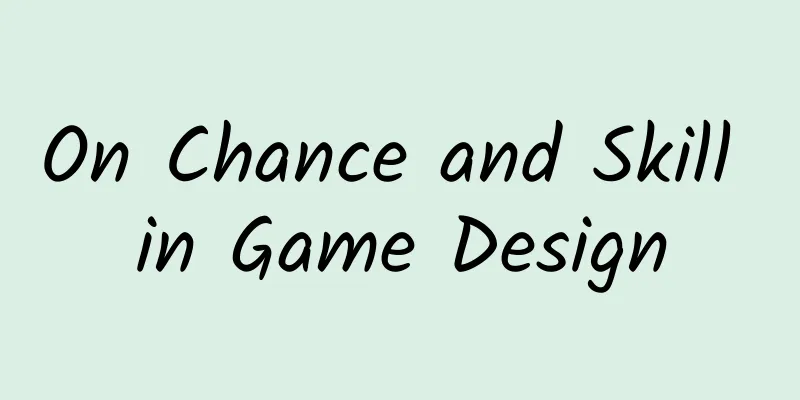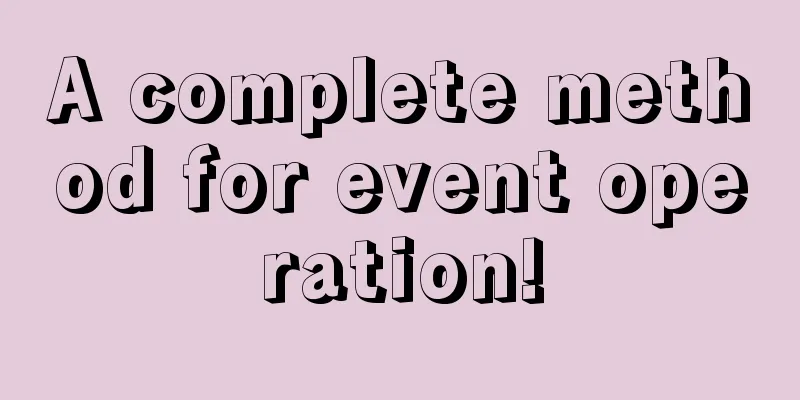On Chance and Skill in Game Design

|
For games that require players to make meaningful decisions, they don't always require players to cast or awaken skills. Some games rely entirely on chance. Games that rely more on chance than skill are often about children's games or gambling games. Why is this distinction so important? Players will always play and play. Don't get rid of the concept of chance too quickly. Games of chance can be very attractive because they allow players with different skills to play based on fair playing odds. Such games are for everyone; for those who are used to the gameplay of rolling dice and those who like to feel the fear in the eyes of their enemies. Some people even find failure and faking fun. Games of luck seem to emphasize more easily achievable goals. On the other hand, games like Tic-Tac-toe are purely skill-based games and can be mastered once a player figures out the main strategy. What I’m about to say may seem crazy, but there are some reasons why games use chance as a game mechanic:
Game Balance Adams and Rollings describe a balanced game as one that is "fair enough for the players, neither too hard nor too easy, so that player skill is the key factor in determining victory or defeat." A balanced game will have the following characteristics: The game offers meaningful choices. Some strategies can help players win. There is no primary winning strategy in the game. The role of chance is less important than skill. A player with greater skill is more likely to win than a player with less skill. The difficulty level of the game is consistent. Players will feel that the game challenges are not at all abrupt and are within their reasonable ability. The following characteristics also appear in player-versus-player games:
Playtesting based on luck and skill balance When balancing a game, an important element to consider is the balance between skill and luck in the game. Here are some signs that your game lacks a skill/luck balance:
Usually, adding "luck" to a game is just adding an element of randomness. In tabletop games, this is usually determined by rolling a dice or shuffling a deck of cards. If you find that you are using too many of these random elements, you can replace them with some automatic advancement (such as moving a player's marker multiple times during a turn) or add player decisions instead of randomness (such as players being able to choose from a range of specific move options). Player decisions can be not just complex, thought-provoking decisions, but also split-second, dexterity-based decisions (such as strumming skills in Guitar Hero). Our textbook distinguishes 3 types of luck/skill games: 1. Games of chance. These can be children's games or gambling games. They can be enhanced by adding strategic elements to the game. Some illusion of skill is enough to make this type of game more interesting. 2. Contraction Skill Games. These focus on dexterity challenges. They are less likely to use chance elements and more likely to add strategic choices. Anything that keeps the flow of the game going is likely to be added to the game. 3. Strategy Skill Games. These games feel more tense and slower because they require the player to think. Adding shrinking elements can break up these longer strategy sessions. Many lengthy RPGs feature smaller shrinking mini-games (like lock picking in Skyrim) to break up some of the longer content. Skill Type Jesse Schell distinguishes 3 main types of skills in his Art of Game Design. Note that many games will require a mix of these different skills, and these strategies are just a starting point: 1. Physical skills: skills like dexterity, coordination, strength, and endurance. These skills are often found in sports games. However, some people may argue that the correct keyboard presses and controller sequences in some e-sports should also be included in this category. Mental Skills: Skills like observation, memory, and puzzle solving. These skills are often associated with making interesting decisions in the game, and the most interesting decisions are often strategic ones. 3. Social skills: Skills like understanding your opponent, deceiving your opponent, and working with teammates. These skills are related to making friends and influencing other people in the game. They are often linked to the player's writing skills. This is also common in team-based sports games. Schell also distinguishes between real skills (your real skills as a human being controlling the game in some way) and virtual skills (the skills you have with your character doing something in the game). Real skills only improve as you play, while your virtual skills can improve even if your real skills don't. In fact, Schell lists all the skills you might use in your game and breaks it down into skill components. You can become a better designer by finding the skills that work best for your players. Chance Chance can make a game more interesting because it can add some uncertainty to the game. Unknown surprises can bring fun to players who like surprises. Chance is also directly related to the probability in the game. Schell lists 10 probability rules that game designers will be familiar with: 1. Fractions, decimals, and percentages are all the same. Fractions, decimals, and percentages all serve the same purpose and are the same: 1/2 = 0.5 = 50. As humans, we love using percentages. 2.0 to 1. Of course this is also about probability, which is between 0 and 1 (such as 100%). When we talk about probability in games, there is no such thing as -10% or 110%. If you try to calculate the probability of rolling a dice and the result is higher than 100, you may need to recalculate. 3. "Desire" divided by "possible results" equals probability. Probability is actually the number of results you expect to appear divided by the number of possible results (in this case, any result can appear). 4. List. Let's assume you are trying to find the outcome you want, and it's not as direct as D6; an effective way to get the answer you want is to list any possible outcomes in your situation. This can help you identify patterns and combinations. 5. In certain situations, OR means ADD. When you are trying to determine the probability of either x or y occurring (such as drawing a specific card in a deck), these events are usually mutually exclusive, and you can add the probabilities to get the total probability of an OR event. 6. In certain contexts, AND means multiplication. When we are looking for the probability of two things happening at the same time, we can multiply the probabilities of their occurrence. This only works when the two events are not mutually exclusive. 7.1 minus a number can mean either "does" or "doesn't." This makes sense when 1 represents a 100% chance of something happening. So whenever you're calculating the likelihood of something happening, you can subtract that number from 1 to get the likelihood of the opposite event happening. 8. The combination of multivariate linear random selection is not equivalent to linear random selection. Linear random selection refers to a random event in which all outcomes have an equal chance of occurring. Rolling a dice is a good example. Adding multiple rolls of the dice does not mean that the possible outcomes have an equal chance of occurring. Rolling the dice twice means that the probability of a certain side appearing becomes higher. However, the possible outcomes in this case all follow a probability distribution, that is, the middle values (6, 7, 8) have a higher probability of occurring. 9. Roll the dice. Schell distinguished between theoretical probability and actual probability. Theoretical probability is what we have talked about so far. It is what will happen in general. Actual probability is what has happened. That is, you can roll the dice over and over again and record the numbers you get, and then calculate the probability based on that. In the best case, the probability is very close to the theoretical probability. This is also what we call the Monte Carlo method. 10. Gombauld's Law. Shcell recommends doing calculations with a friend whenever you are faced with a probability problem that is difficult to solve alone. This may include posting math and probability related questions on the mailing list. Here are some important things to say about chance (from Adams and Rollings):
|
<<: Experience sharing: How do we promote APP?
>>: Swift social app text input optimization "hodgepodge"
Recommend
Tik Tok video copywriting operation skills tutorial
Douyin video copywriting operation skills tutoria...
Fengjie teaches you how to write 10w+ stories
Fengjie’s article became popular. The article &qu...
Baoman CCO explains user operations for you from the definition, nature of work and workflow
As the CCO of Baozou, during my work at Baozou Co...
UCloud: Cloud computing saves a lot of costs for enterprises
As cloud computing technology, products, and serv...
From tactics to strategy, 7 ways to get early seed users for App promotion
All startups will face the problem of how to acqu...
How to build a brand? Brand building methodology!
Without a brand, your product will be trapped in ...
The hairy crab waited two years for their once-in-a-lifetime mating opportunity, and then...
Maple leaves are turning red, osmanthus is fragra...
He is a master of astrophysics, but also a stumbling block to the development of the discipline?
Arthur Eddington made outstanding contributions i...
Double 11 Xiaohongshu official marketing manual!
Double 11 and Double 12 are coming one after anot...
Fun fact: What other uses do pigs have besides providing meat for humans?
Pigs are the most common livestock among all live...
Little Red Book Promotion Notes Marketing Strategy!
If you ask me which platform users enjoy watching...
Owl: I am a “round owl”, not a “Yuanxiao”!
As we all know, the symbol of the Lantern Festiva...
How to design an e-commerce new product channel?
Nowadays, with the rapid development of the Inter...
Copying the routine of Tik Tok's popular content, why is it not popular yet?
What are the usage scenarios of short videos that...
We analyzed 100 mobile apps and found 6 common reasons why apps crash!
People hate app crashes, especially when they slo...









